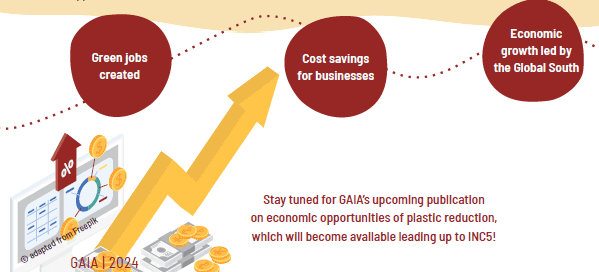by Edel S. Garingan
Getting into business is no walk in the park. It takes more than just putting your product in the market and expecting people to buy it. It is even harder if your business involves confronting culture, systems, and lifestyles—the very concerns of Zero Waste stores in Asia Pacific, especially during these days where convenience rules the day. These businesses—thriving even during the pandemic—are disrupting the unsustainable use of plastics and rediscovering Zero Waste ways to offer consumer products.
We interviewed 21 enterprises in Asia Pacific. From the neighborhood grocery store in Petaling Jaya in Malaysia to the surplus food delivery system in Australia, each store has an inspiring story to tell that goes beyond profit. The best part is—they are also growing!
The reemergence of Zero Waste stores in the region is more than just a welcome development; it is a big leap for businesses in reimagining the way materials and products circulate in a more sustainable way. The successful stories we featured in this book present the following beautiful possibilities for aspiring entrepreneurs in adapting Zero Waste as a driving force for their business—an approach
that:
…prioritizes its mission for the environment and the communities
What separates a Zero Waste store from other business ventures is its clear mission to help address plastic pollution and mitigate its impact to people and the environment. In Sri Lanka, for example, the tragedy of the 2017 trashslide in the Meethotamulla dumpsite has greatly moved businesswoman Udara Rathnayake to put solutions into action by setting a Zero Waste store for organic food and other household items. This is the same model for NUDE, a Zero Waste store in Malaysia that provides an array of products to its consumers without the unnecessary plastic packaging. NUDE also offers its consumers the choice of paying for items based on the amount they only need rather than buying them in predetermined sizes, weights, or containers.
…promotes sustainable lifestyle through creative marketing and education
Guided by their mission for sustainability, Zero Waste stores are proactively communicating their solutions to target consumers and the general public, thus raising public awareness on the issue and inspiring behavioral change. Slowood in HongKong, for example, utilizes its social media platforms to squeeze in Zero Waste content between product promotions.
And while they recognize that developing positive behavior towards Zero Waste is a long process, Zero Waste stores are trying different means to draw people in. From time to time, the 7 to 9 Greenstore in Kerala, India, distribute product samples for consumers to see for themselves that these items are as good as—or even better than—branded products.
…supports small producers and the local economy
Most Zero Waste stores, especially those that are acting as consolidators of products, prefer to engage with small producers and community-based social enterprises because for one, they have more flexibility to adapt Zero Waste in their businesses. They are doing this as a conscious effort to help the small business sectors and provide extra income for them. For example, Mother Earth Foundation’s JuanaZero sources recycled paper accessories from women artisans in their project sites. A lot of Zero Waste stores are also working directly with small farmers and other producers, procuring products at fair prices, and selling them sans plastic packaging.
…tries to integrate Zero Waste principles across the value chain
Zero Waste stores are about more than veering away from plastic bags and shifting to eco-bags. More importantly, they adopt Zero Waste principles in their value chains, from source materials close to actual production, to product delivery. Refillables Hoi An in Vietnam, for instance, ensures that their suppliers understand how plastic-free delivery systems can work in a tourist destination like Hoi An. Meanwhile, barePack in Singapore has successfully convinced restaurants that there is a conscious local market that prefers reusable containers for their takeout and food deliveries. These are just a few examples of unique approaches that engage different stakeholders in their value chain—the producer, the middleman, and the consumers—in the Zero Waste system.
Many think that Zero Waste stores are the emerging market of our time. In reality, they are a thing of the past that we should not have
left behind in the first place. The models that we are seeing now have already existed before. They are simply being adapted with some
modifications to suit our current contexts. While the past is “past” as we say, today, we have the right opportunity to create more business models that are more attuned to the sustainable future that we all dream of and deserve.
______________________
This article is part of the book, BUSINESS UNUSUAL: Enterprises paving the way to Zero Waste, a collection of feature articles on select enterprises in Asia Pacific that practice and promote Zero Waste principles. Published by Global Alliance for Incinerator Alternatives, the publication may be downloaded for free at www.no-burn.org/Business-Unusual.




























